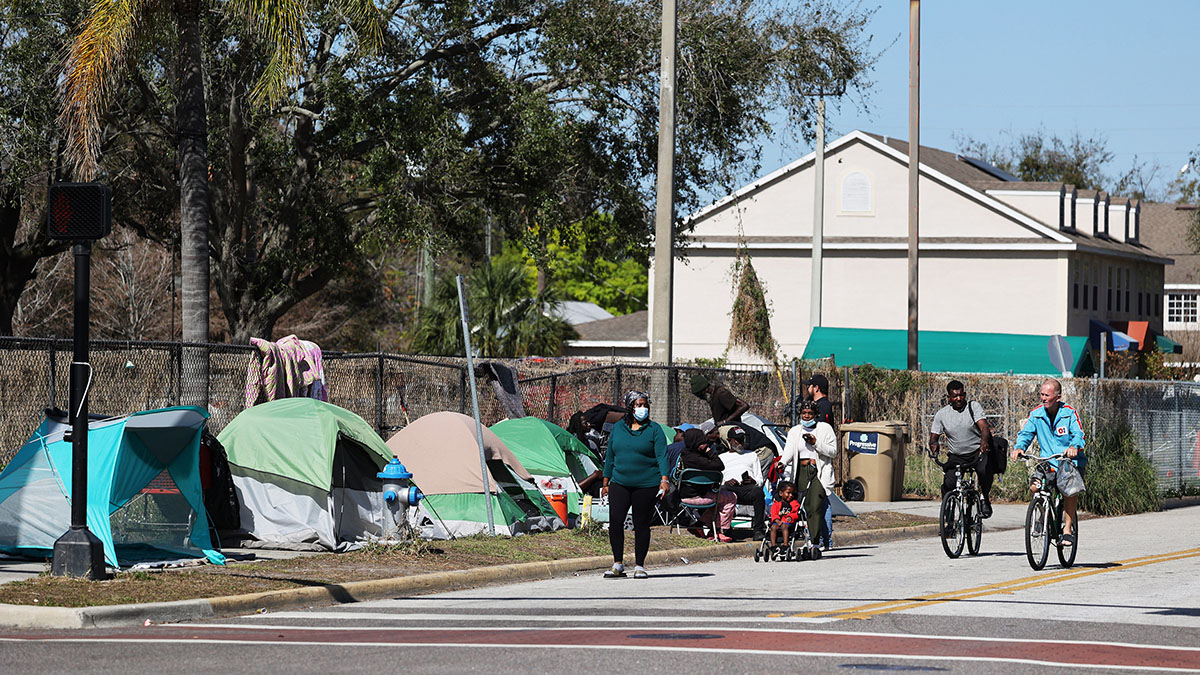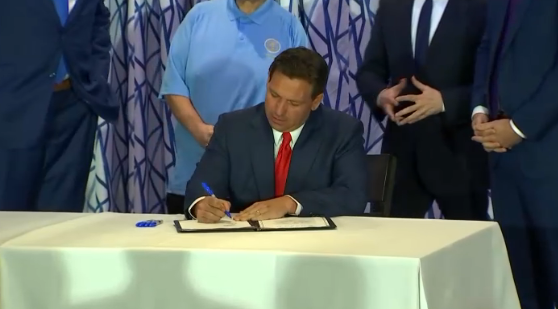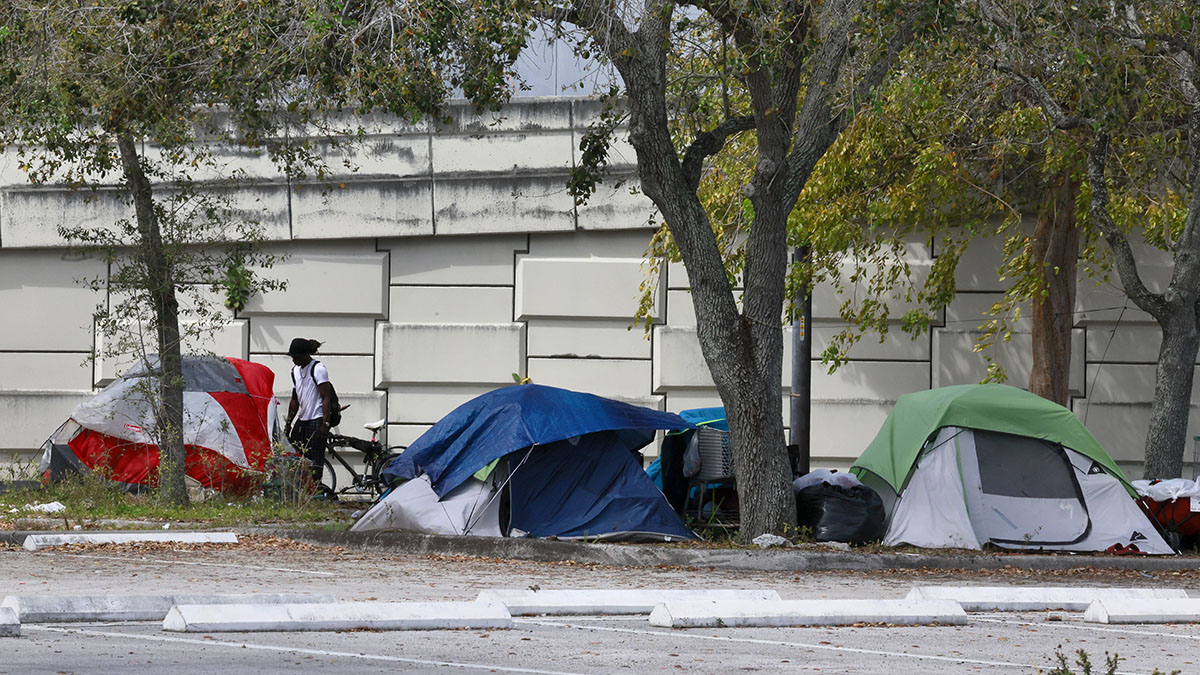)_
On any given night, there are twenty to thirty people sleeping on the sidewalk on SE 3rd Street between 1st and 2nd streets, in the heart of booming Downtown Miami.
“Something needs to be done because these folks need help,” said David Bianchi, an attorney who works nearby. “And nobody’s gonna want to live down here or rent offices down here if you don’t clean this up.”
For many, it’s a bad look for the area and, of course, a terrible situation for the people who are homeless and have to sleep on the streets.
Get South Florida local news, weather forecasts and entertainment stories to your inbox. Sign up for NBC South Florida newsletters.
Situations like this are what a new state law signed last week by Governor Ron DeSantis is supposed to address.
The law allows local governments to set up tent encampments and forcibly move homeless people into them if they are sleeping in public areas.
It also allows residents and businesses to sue local governments if they don’t relocate the homeless.
Florida homeless law
Bianchi says homeless people started congregating on the sidewalk across the street from his office a few months ago, bringing sanitation issues and other problems with them.
“One of the ladies who works in our office was hit in the face by one of the homeless people down here which now has everybody in the office very concerned,” Bianchi said.
Bianchi is hopeful that the new state law will help the situation downtown.
Social workers from "Hermanos de la Calle," working for the Homeless Trust, like Ron Book, are doing their best to get the unsheltered people into shelters.
“Encampments with tents and things that allow someone to have an easier way to sustain their lives on the streets, I don’t find productive,” said Ron Book, the chairman of the Homeless Trust.
Book said his agency has had great success over the past three decades in getting the unhoused into housing, which is why, he says, Miami-Dade County currently has about 1,032 people on the streets, compared to tens of thousands in many other cities.
“Our job is to catch people and get ‘em into shelter and permanent housing, get them the services they need,” said Book.
Book agrees that it’s hard to get someone who experiences mental health problems to accept help, but says his agency is having more success in that area.
“As they say, you can lead a horse to water but you can’t make him drink, you can have all the programs in the world but if some of these folks don’t want to participate, it makes it hard to deal with it,” Bianchi said.
Bianchi told us Miami can’t have a world-class downtown with homeless people camped on the sidewalk, which is why, he said, he fully supports the Homeless Trust and its efforts to help the unsheltered.




